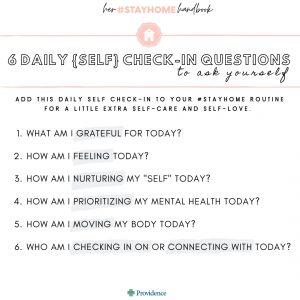5 Ways to Get Your Finances on the Right Track
- Lifestyle
- Mar 14, 2016
Nothing makes me feel like a real adult quite like facing my finances. It’s frightening to take a real look at student loan debt, credit cards, income, and monthly spending. But, it’s necessary to look at the big picture and find out where you can improve and what changes you should make in your lifestyle. Here are 5 tips to help you get on the right track with your finances!
1. Track Your Spending
For the next month, here’s your assignment: Record where every cent goes. Save receipts, credit card slips, canceled checks, and write everything else down on a pad of paper. Or you can go all-digital with a site like mint.com that tracks every credit and debit card purchase. Whatever your preference, here’s the key: Let no transaction go unrecorded. You’ll be surprised at just how much those $4 Starbucks trips add up. Often just seeing your spending pattern will point out ways to save.
2. Save in Your Sleep
Don’t overthink it when it comes to saving. Big goals like your dream vacation, or your child’s college fund are huge and uncertain. If you keep waiting to know the exact cost and when it will strike, you’ll never save anything.
So start today. Instead of thinking about how much you’ll need to reach your goal, estimate the maximum amount you could possibly save each month.
Then set up automatic payments from your paycheck toward your goal. If you find you need more spending cash during the month, you can always adjust—but in the meantime, you’re stashing cash toward your next big vacay.
Why It Works: Automatic payments don’t just make saving easier—they make spending less tempting. How? Money—spending it or even thinking about spending it—causes a dopamine rush in your brain. Then you’re relying on your willpower to resist handing over your VISA. That’s a battle you’ll lose. So remove as many of those decisions as you can through automatic bill pay and savings withdrawals.
3. Transfer Your Savings to a Money-Making Account
Don’t stow extra cash in your checking account—you’re letting your money be lazy. “Having more than what’s required to avoid minimum-balance fees is a waste, because it’s not earning interest. Stash a month’s worth of expenses in checking. Then put the rest of your emergency stash—experts now recommend a 6- to 9-month buffer—in a high-yield savings account. Compare rates at bankingmyway.com.
4. Bulk Up Your Emergency Fund
In this volatile economy, you should save at least 6 months’ worth of expenses in case you get laid off. To start, save much as you can once you’ve paid the bills, experts say. If you must insist on a number, start by putting 10 percent of your paycheck toward the emergency fund. Once you have 6 months’ worth of income saved, tackle your debt. (You might hear debt first, savings later, but the safety net is important to have in case layoffs hit.) “Setting aside cash is as important as avoiding interest, so be aggressive about both,” says Ray Harrison, the founder and CEO of Harrison Financial Group.
5. Balance Your Budget
Call it a “spending plan” or “financial strategy” if you can’t stand the b-word. Point is, you need to know where your money’s going if you want to save more of it. Use the five categories listed below, and within them list all the expenses you pay online from your checking account. (Put rent under housing, car payment under living expenses, etc.) Add a line for cash under living expenses.
Recommended budget allocations:
Renting
- Housing 35%
- Living expenses 40%
- Emergency/insurance 2%
- Pleasure/personal 15%
- Savings 8%
Single with home
- Housing 45%
- Living expenses 25%
- Emergency/insurance 6%
- Pleasure/personal 14%
- Savings 10%
Married with home
- Housing 37%
- Living expenses 25%
- Emergency/insurance 8%
- Pleasure/personal 20%
- Savings 10%
Household with kids
- Housing 37%
- Living expenses 30%
- Emergency/insurance 10%
- Pleasure/personal 15%
- Savings 8%
How do you keep your finances in check? Let us know in the comments below!



